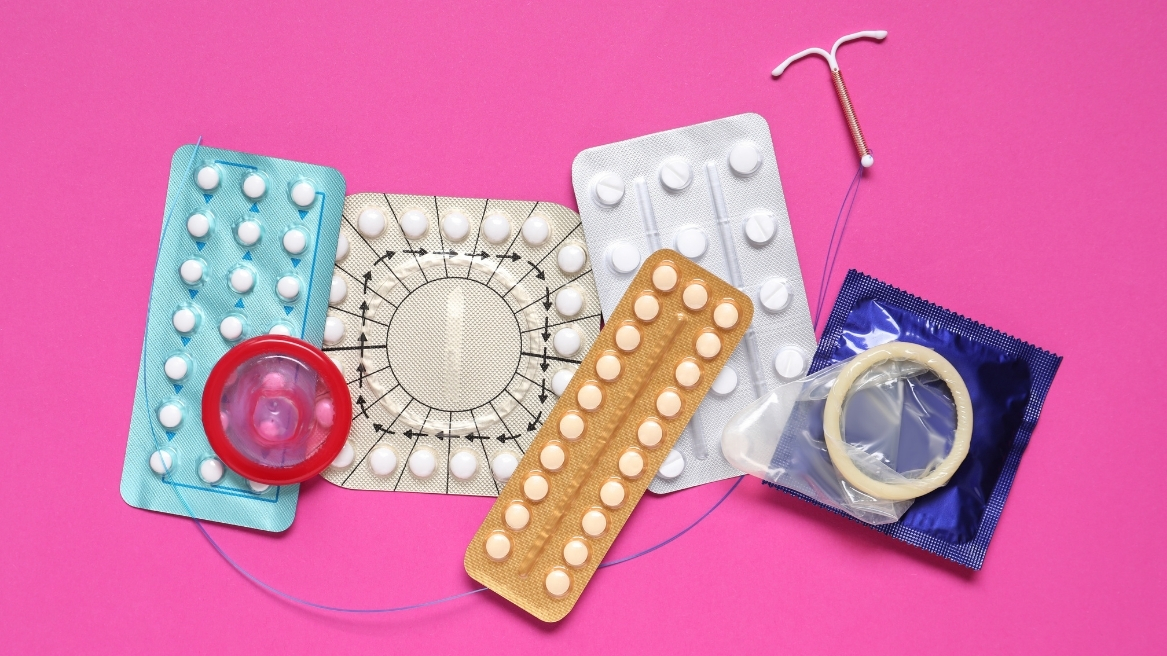Contraceptive pills are a widely trusted method for birth control among women in Longfield, Dartford, and Gravesend. Beyond preventing pregnancy, these pills offer numerous health benefits. This comprehensive guide explores how they work, their various types, health advantages, and potential side effects, providing essential information for making informed health decisions.
How Do Contraceptive Pills Work?
Contraceptive pills, commonly known as birth control pills, contain synthetic hormones that replicate the natural hormones in your body, primarily oestrogen and progestin. These hormones work together to prevent ovulation—the release of an egg from the ovaries. Without ovulation, pregnancy cannot occur. Additionally, these hormones thicken cervical mucus, making it difficult for sperm to reach any egg that might have been released, and thinning the uterine lining, reducing the likelihood of implantation.
Types of Contraceptive Pills
Combined Oral Contraceptives (COCs)
Combined oral contraceptive pills contain both oestrogen and progestin. They are the most commonly prescribed type of birth control pill and offer numerous benefits, including:
- Regulation of Menstrual Cycles: COCs can help make periods more regular and lighter.
- Reduction of Menstrual Cramps: Many women experience less painful periods when taking COCs.
- Acne Improvement: The hormone regulation provided by COCs can lead to clearer skin.
- Prevention of Bone Loss: COCs can help maintain bone density, reducing the risk of osteoporosis.
Progestin-Only Pills (POPs)
Progestin-only contraceptive pills, also known as the mini-pill, contain only progestin. They are a suitable option for women who cannot take oestrogen for health reasons. Benefits include:
- Suitability for Breastfeeding Women: POPs do not affect milk production.
- Reduced Risk of Certain Cancers: Some studies suggest that POPs may lower the risk of endometrial and ovarian cancers.
- Lower Risk of Blood Clots: POPs are less likely to cause blood clots compared to COCs.
Benefits Beyond Birth Control
Health Benefits of Contraceptive Pills
Contraceptive pills offer several health benefits beyond pregnancy prevention:
Management of Polycystic Ovary Syndrome (PCOS)
For women with PCOS, contraceptive pills can help regulate irregular menstrual cycles and reduce symptoms such as excessive hair growth and acne. Regular hormonal regulation can also help manage weight and improve insulin resistance, common issues associated with PCOS.
Prevention of Ovarian Cysts
By inhibiting ovulation, contraceptive pills reduce the risk of developing ovarian cysts, which can be painful and sometimes require surgical intervention. This benefit can be particularly significant for women who frequently develop cysts.
Endometriosis Symptom Relief
Endometriosis, a condition where tissue similar to the lining inside the uterus grows outside it, can cause severe pain. Contraceptive pills can help manage these symptoms by regulating hormone levels and menstrual cycles, reducing the frequency and severity of pain and bleeding.
Reduction of Menstrual-Related Disorders
Contraceptive pills can also alleviate symptoms of menstrual-related disorders, such as premenstrual syndrome (PMS) and premenstrual dysphoric disorder (PMDD), by providing consistent hormone levels throughout the cycle.
Considerations and Side Effects
Potential Side Effects
While contraceptive pills offer many benefits, they can also have side effects. Common side effects include:
- Nausea: Often subsides after the first few months of use.
- Breast Tenderness: May decrease over time.
- Headaches: These can vary with hormonal fluctuations.
- Mood Changes: Hormonal changes can affect mood, so it’s essential to monitor any significant shifts and discuss them with a healthcare provider.
- Weight Gain: Some women may experience slight weight gain due to fluid retention.
It’s important to consult with a healthcare professional to determine the best type of contraceptive pill for your needs and to discuss any potential risks. Regular check-ups can help monitor any side effects and adjust prescriptions as necessary.
Where to Get Contraceptive Pills in Longfield, Dartford, and Gravesend
At Hodgson Pharmacy, we provide a range of contraceptive options and expert advice to help you make an informed decision about your reproductive health. Visit our locations in Longfield, Dartford, or Gravesend for personalised consultations.
Conclusion
Contraceptive pills are a versatile and effective option for managing reproductive health and providing additional health benefits. Whether you are looking to prevent pregnancy, regulate your menstrual cycle, or manage conditions like PCOS and endometriosis, contraceptive pills can be a valuable tool in your healthcare regimen. For tailored advice and access to a variety of contraceptive options, visit Hodgson Pharmacy in Longfield, Dartford, or Gravesend. By understanding how they work and their broad impact on women’s health, you can make informed decisions about your reproductive health. For more information, explore resources such as the NHS website or consult with our experts at Hodgson Pharmacy.

